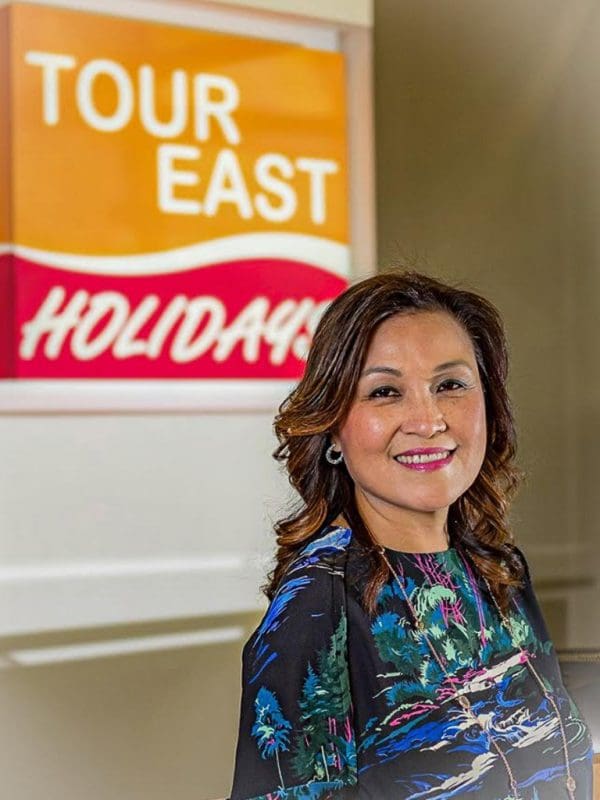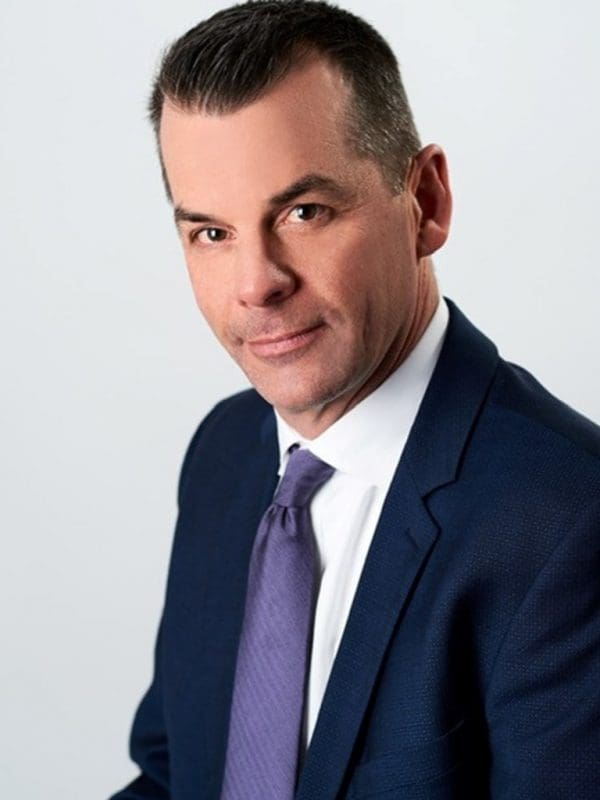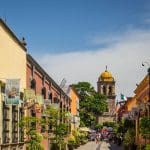What's standing in the way of recovery?
ANN RUPPENSTEIN
As the travel industry slowly begins to pick up the pieces in the wake of COVID-19, there are still many hurdles to overcome. News of countries in Europe reopening borders to Canadians was overshadowed by the fact that the federal government is still advising against non-essential travel and requiring arriving passengers to self-isolate for 14 days. Until these limitations are lifted, can recovery begin?
Even within the country, varying restrictions are in place, and policies and procedures range from province to province, airport to airport.
Travel Courier chats with a panel of tourism professionals to get a better sense of the current state of tourism, the roadblocks obscuring the way forward and what’s needed to fuel a stronger rebound.

Chuck Crowder
WestJet’s Vice-President Sales Charles (Chuck) Crowder says the current travel restrictions in Canada are a major roadblock for the travel industry.
The immediate focus must be standardizing intra-provincial travel advice to ensure Canadians can move safely and freely across our country,” Crowder tells Travel Courier. “We believe the ability to travel can be opened responsibly and the patchwork of domestic travel restrictions and quarantine periods that are currently in place within our own borders are severely limiting Canada’s economic recovery and putting hundreds of thousands of jobs in our critical industry at risk.
With many safeguards and procedures implemented to mitigate risk throughout the entire travel journey, he says the airline “is certain travel can be undertaken safely while allowing for economies to begin growing again and putting Canadians back to work.”
As for regaining consumer confidence in flying, he understands that there will be different levels of comfort or confidence with travel right now.
“We believe that we must continue to do all that we can to ensure those who are comfortable with it can travel safely and responsibly on our aircraft,” he says. “COVID-19 and its devastating impact on all aspects of life globally has not yet run its course. The effects of this pandemic are unprecedented and recent suggestions that air travel is unsafe or will look a certain way in the future is fuelling speculation and impacting recovery. We must work together to address the immediate impacts and concerns of this crisis and align on how we will approach this new normal in lockstep.”
While increased flying in recent months is a positive sign, he stresses that it’s important to be realistic and responsible when it comes to demand at this time.
“There’s no question this drop in demand is unprecedented and while the closure of borders and a reduction of almost 90 percent of our passenger traffic due to the COVID-19 pandemic has dramatically impacted the financial welfare of our airline and our industry, we know WestJet and our industry has a vital role to play in Canada’s economic recovery,” he says. “We are prudently monitoring our guest loads and while we are seeing some green-shoots of recovery, we anticipate leisure travel will gradually increase throughout the fall and into 2021.”
With a vaccine not yet produced, he says travellers and those in the industry must learn to live responsibly with the virus as it’s here for the foreseeable future.
“We strongly believe health and safety should never be a source of competitive distortions,” he says. “It is important to remember that we are only flying five percent of our schedule and an increase in flight numbers is not an indication of our recovery or return to normal operations. We must remain nimble in this crisis.”

Shelley Ewing
As other countries open up, many clients are starting to make travel plans, however, the majority are booking further down the road as that offers more assurance of quarantine restrictions being lifted at home,” Ewing tells Travel Courier.
Ewing says consumer confidence is the driving factor for recovery and the number one confidence builder for many will be a vaccine or testing mechanism.
“I have empathy for our clients’ anxiety and realize that health and safety come first, so it is important to continue to get the message out, stressing the measures being implemented throughout all sectors of the industry,” she says. “It is also necessary for us to lead the way, to travel, so that we can reassure our clients that these new standards and protocols are effective and safe.”
She points out that it’s been frustrating and confusing for clients to navigate the various standards and procedures from airport to airport.
“Having consistency between the different authorities would add another layer of confidence for travellers,” she adds.
As recovery begins, Ewing says there is evidence of pent up demand for travel.
“I like to think that I am a rational optimist and believe that we will recover, however, this is new territory for everyone and recovery is not going to be linear, there will be setbacks,” she says. “The good news is, we are seeing green shoots and it’s clear that people have not lost their desire to travel. People want to connect, to experience other cultures and travel is the best way to do that.”
During this time, TierOne Travel stayed connected with clients through virtual travel nights, as well as “keeping the dream alive” through blog articles and newsletters.
“Our focus has been on Canadian content, but we are expanding that by providing options for new bucket list ideas,” she says. “We are continually testing the waters for what works to stimulate confidence and demand.”

Annie Tsu
Until Canadian travel restrictions are lifted, Annie Tsu, President and CEO of Tour East Holidays, feels recovery can’t truly begin within the travel industry.
“For the most part, Canadians have heeded the warnings of our government and health officials throughout the COVID-19 crisis and I don’t see that changing just because others are reopening their borders,” Tsu tells Travel Courier. “As long as Canadian restrictions remain in place, the travel industry’s recovery will be parked in limbo.”
Beyond reopening borders and enhanced hygiene and physical distancing protocols, she believes a proven vaccine will be key to regaining consumer confidence in travelling.
“Until one is developed that is an effective cure, I don’t see how we can expect consumer confidence to return,” she adds. “And even if and when a vaccine is developed, the second punch to our industry will be the economic fallout that the pandemic has caused. The recovery from COVID-19 will make the SARS and 2008 economic crisis look like a walk in the park.”
When travel resumes, she predicts countries without the entry requirements for PCR tests will be favoured.
“If that results in lower arrivals in places that require it, then you’ll see a quick reversal by authorities in those locations,” she says. “However, places that have reopened their borders have not seen a rush back.”
At this point, Tsu says she’s no longer optimistic or pessimistic, just realistic about what’s to come.
“I’ve lived through all the major obstacles put in our industry’s way in the past (SARS, 9/11, economic crisis, etc,) and they all pale in comparison to COVID-19,” she says. “This pandemic will leave every traveller with nagging doubts about their health and safety while travelling for many years to come. That means travel providers like ourselves will have to do a lot of due diligence to reassure them.”
Just like airlines, she points out that travel providers need financial compensation to help get back on track.
“But so far, we are being ignored by governments and provincial regulators,” she says. “More has to be done to support agents and travel companies or many will perish and consumers will be left with higher travel costs and less competition.”
During the lockdown period, she says Tour East Holidays’ tour and air ticketing teams worked diligently from home on rebooking, rescheduling and making refunds to customers whose trips were cancelled or delayed because of the pandemic.
“We are ready to resume activities and have actually been getting a trickle of inquiries, which has been a morale booster for our teams,” she says. “We have never seen anything like this before and I hope we never see it again. Our industry is resilient, though, and I’m confident we’ll come back again.”

Brett Walker
When it comes to his outlook about the evolving nature of the travel industry and the situation at hand, Brett Walker, the chair of the Canadian Association of Tour Operators (CATO), says it comes down to one word: flexibility.
That means any solutions (and there will need to be many) may lose their efficacy over time,” Walker tells Travel Courier. “This is a potentially oscillating public health risk — ie. Melbourne back into lockdown — so what works now may not work as well in the future… or may even become ineffective or even a potential liability. Changes are inevitable. However, politicians in particular don’t like extraneous forces (not even a pandemic) forcing a change of course, let alone a retraction of some policy decision altogether.
Walker, who recently penned a letter to Justin Trudeau asking the federal government to “decide and make clear any measures and/or criteria required for opening of Canada’s borders and the restart of travel of all types, national and international,” feels that Canadians understand and are onboard with a nimble policy environment so long as the virus cannot be controlled.
“To the extent we dig in our heels, one way or the other, we become more fragile,” he adds. “We need a robust public health and economic recovery strategy that is aligned with each other. It’s going to require a lot of flexibility on everyone’s part.”
As the chair of CATO, Walker points out that he hasn’t been approached by any politician directly about the needs of its members.
“If a public health strategy is to align with economic recovery, one needs to have these conversations between government and industry organizations,” he says. “I would welcome a call on behalf of CATO members from any federal, provincial or territorial leader. Despite CATO’s many efforts to encourage dialogue with government, including a recent letter to the Prime Minister, we have not been asked by the Government to engaged in any meaningful way.”
Since re-establishing confidence in tourism is crucial for the industry, the destinations and communities visited, as well as the traveling public, CATO, ETOA and USTOA worked together to develop the TOURCARE guidelines for tour operators.
“Other than this, travel operators will have to be more flexible as well. There again – there’s that word,” he says. “As I wrote in a recent CTP article a few weeks back; the consumer is king. They are not going to leave themselves exposed to any more risks than they have to – including terms and conditions generally and specifically cancellation, non-ref payment, etc. To the extent the industry makes it easier for consumers, then we’ll see demand-side recovery much more quickly than we would otherwise.”
Looking to the future, he says, let’s hope for a vaccine.
“My own opinion is we will have a vaccine before we see a global norm requiring a negative COVID-19 PCR test to enter countries. That said, there will be hot spots and flare-ups for some time before there is a vaccine readily available and so there may be specific requirements for a negative COVID-19 PCR test for certain countries or even regions,” he says. “Any meaningful recovery is going to require us to stop thinking in binary terms like ALL OPEN or ALL CLOSED. Even when the Canada – US border does open, perhaps the Maritime bubble will not. That’s okay. However, sub-national jurisdictions are not exempt from what I am talking about here. They too need to be cognizant of the fact a public health strategy requires an aligned economic strategy.”
Right now, he says the hardest thing for CATO members is the fact they have not been invited into the political process.
“There has been no transparency as to what the future holds, meaning we are dealing with near total uncertainty,” he adds. “We can hope for the best but hope is a terrible strategy.”

Alison Hickey
While self-quarantine restrictions are a vital part of maintaining health and safety at the moment, Alison Hickey, President, Kensington Tours, thinks they are definitely a barrier for many people when considering travel.
You need to pre-plan how you will feed yourself and take care of other daily needs while isolating for 14 days, before your trip actually starts,” Hickey tells Travel Courier. “You need to be able to budget for that and accommodate that extra time, and the reality is that not everyone can manage that. It’s difficult to foresee a full recovery for the industry when there’s a high barrier.
Hickey believes a high standard of health and safety for Canada can be maintained through a targeted, responsible and data-informed way, so that travellers are confident their health is being protected.
“Blanket restrictions and policies are no longer as useful. For instance, not all countries and regions present an equal risk, and we shouldn’t treat them as such. For international visitors, it’s time to mirror the measured and safe approaches taken in other areas – like the E.U., where they have started to re-open borders to safe countries,” she says. “Heightened hygiene and bio-safety measures are being adopted across travel and tourism to allow for safe travel, with confidence. (For example, travellers avoid quarantine if they sign a compliance certificate at their lodging that certifies they received a negative COVID-19 test within 72 hours.)”
Before they readily travel again, she says consumers need to feel a sense of confidence.
“Consistent application of hygiene protocols like wearing masks and distancing are critical for that,” she says, noting that Kensington Tours has instituted a Safe Travel Certified policy, which is in alignment with the World Travel & Tourism Council certification protocol. “Options that offer a tailored itinerary and keep travellers apart from crowded clusters of tourists, such as Kensington Tours’ custom private-guided approach, will also go a long way to building confidence.”
Finally, she says working with experts that consumers can trust while planning and booking their travel will be crucial.
“Many people will seek out reputable agents and tour operators, instead of trying to book by themselves online,” she says. “There’s real value in working with a travel partner who is fully informed about the destination, and who can also be a strong advocate for you if the situation on the ground changes while you’re traveling.”
As for destinations requiring proof of a negative COVID-19 PCR test for entry, she notes they believe it is making a positive difference to people.
“It’s a way of ensuring that you’re maintaining a high standard of health and safety, while recognizing that most people simply can’t afford the time or expense of adding weeks of quarantine time onto their travel,” she adds. “It’s impossible to predict how long such entry tests will be required; I’m sure that each of these jurisdictions is monitoring things closely, and we’re all aware of how quickly the situation can change. All we know is that it’s a good step forward.”
Despite the challenges the industry has faced in the last few months, she says history has shown us that travel is one of the world’s most resilient industries.
“While we don’t know exactly when travellers will be back in force, we can be certain that they will be back,” Hickey says. “We’ve done a lot of work so far as an industry to build confidence and re-establish trust, and of course we’ll have to continue that work. We believe that travel is a fundamental need for people; we’re almost hard-wired to want to explore and connect with each other. And we feel strongly that Kensington Tours is well positioned to serve the person who wants to get all that from travel – today, and in the future.”
In the meantime, she says Kensington Tours has been working hard to reignite people’s passion for travel while answering the new realities of COVID-19. To help agents and clients feel more confident about bookings, they’ve extended the “Book risk-free, guaranteed” program, which allows clients to make changes to new bookings until just seven days before departure.
“Clients get more of a sense of control over their plans, and a sense of reassurance that their investment is protected if things change. That’s the kind of confidence builder that your agent is much more likely to know about with their industry insight, and make sure that you as their client take advantage of,” she says. “We’ve worked very hard to support the agent community over the past few months, doing regular outreach, sharing information and trying to keep the passion for travel strong even during what are admittedly some pretty dark times.”

Dean Dacko
For Dean Dacko, Regional President, Uniglobe Travel (Eastern Canada), the restriction to self-isolate for 14 days is dramatically reducing the demand for travel.
As the travel restrictions continue to prevent our industry from fully recovering from the impact of COVID-19, we need financial support to continue for at least the balance of 2020, and possible beyond,” Dacko tells Travel Courier. “All suppliers have agreed that normal business will not return until sometime in 2022, so the requirement for long term support is critical.
Based on the information Uniglobe Travel received from clients through formal survey results and direct conversations, he says trust and confidence in traveller’s health and safety must be assured before they will travel again in large numbers.
“A vaccine to prevent the COVID-19 virus freely available to Canadian travellers will be what it takes to provide this assurance,” he says.
Rather than hinder travellers, he sees the entry requirements for the proof of a negative COVID-19 PCR test as providing some security for travellers.
“I believe a requirement for a negative test will provide a higher level of comfort for travellers to know that all they are travelling with are free from the virus,” he says. “There will be many more adjustments as the virus continues to evolve globally.”
Overall, he says Uniglobe is very confident that the future of travel remains incredibly positive.
“Early indications support a more rapid return of volume than was predicted,” he says. “We are working in a new environment where the health and safety of our travellers is even more important now, and the value of an experienced Travel Advisor will be more important than ever before.”


















